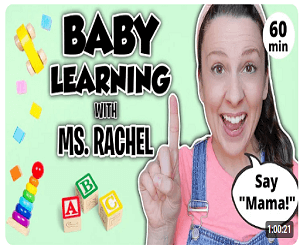Proven Strategies for Early Learning and Development
Fostering Language and Communication
As parents, we all want to give our little ones the best start in life. One of the most crucial areas of early childhood development is language and communication. In this comprehensive guide, we’ll explore proven techniques to nurture your baby’s speech, language, and social-emotional growth.
Mastering First Words
The first words your baby utters are a significant milestone, signaling the beginning of their language journey. To encourage early speech, try modeling simple words like “mama,” “dada,” “ball,” and animal sounds. Repetition and engagement are key – sing, clap, and sign along with your little one to reinforce these foundational words.
Remember, every child develops at their own pace, so don’t worry if your baby isn’t speaking as early as you might expect. Keep talking, reading, and singing, and celebrate each new word as it emerges.
Promoting Gesture Development
Gestures, such as waving, pointing, and clapping, are important precursors to verbal communication. Babies who use more gestures between 9-16 months often demonstrate increased language abilities two years later. Aim for 16 gestures by 16 months to support your child’s language development.
Incorporate gestures into your daily routines and playtime. Wave “hello” and “goodbye,” point to objects, and encourage your little one to copy your actions. These simple interactions can have a profound impact on their language skills.
Nurturing Early Sentence Formation
As your baby’s vocabulary grows, you can start modeling simple sentences like “What’s that?”, “I did it!”, and “I want toys!” By providing these language models, you’re giving your child the building blocks they need to construct their own meaningful phrases.
During play and everyday activities, narrate your actions and describe what your child is experiencing. This “sportscaster” approach exposes them to a rich language environment, priming them for more advanced communication.
Fostering Cognitive and Motor Development
Alongside language skills, it’s essential to support your baby’s overall cognitive and physical development. By engaging in a variety of age-appropriate activities, you can nurture their problem-solving abilities, fine motor skills, and more.
Milestone Mastery
Developmental milestones, such as clapping, waving, pointing to body parts, and using simple gestures, are important indicators of your child’s progress. Celebrate each new skill your little one acquires, and don’t hesitate to reach out to your pediatrician or an early intervention specialist if you have any concerns about meeting these milestones.
Incorporate milestone-focused play into your daily routine. Engage in games like peek-a-boo, pat-a-cake, and “This Little Piggy” to encourage your baby’s cognitive and motor development.
Sensory Exploration and Imaginative Play
Provide your child with a variety of age-appropriate toys and materials to explore. Shape sorters, puzzles, blocks, and other manipulative toys help develop fine motor skills and problem-solving abilities. Engage in imaginative play, such as pretending to be animals or using household items as props, to foster creativity and social-emotional growth.
Remember, the key is to follow your child’s lead and allow them to direct the play. By observing their interests and preferences, you can tailor the activities to keep them engaged and learning.
Nurturing the Whole Child
Ultimately, supporting your baby’s overall development requires a holistic approach. In addition to the language, cognitive, and motor skills we’ve discussed, it’s essential to prioritize your child’s social-emotional well-being and foster a nurturing, responsive environment.
Emotional Connections and Responsive Caregiving
Babies thrive when they feel safe, secure, and loved. Respond promptly to their cries, provide comforting touch and affection, and engage in back-and-forth interactions. These positive emotional experiences lay the foundation for healthy social-emotional development.
Encourage your child’s self-regulation skills by helping them recognize and manage their emotions. Use simple techniques like mirroring facial expressions and validating their feelings to support this crucial area of growth.
Enriching Environments and Routines
Establish predictable daily routines and provide a stimulating, yet safe, environment for your baby to explore. Incorporate singing, reading, and conversation into everyday activities like dressing, feeding, and bathing. This consistent, nurturing approach helps your little one feel secure and fosters their overall development.
Remember, every child is unique, and the pace of their growth may vary. The most important thing is to cherish each milestone and celebrate your child’s progress, no matter how small. With your love, guidance, and commitment to their well-being, you can unlock your baby’s full potential and set them up for a lifetime of success.
